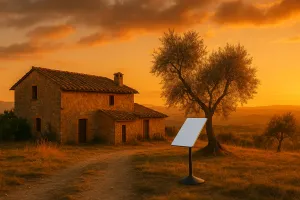Returning to a rustic, off-grid life in a remote area can be both a dream come true and a formidable challenge. For those seeking simplicity, self-sufficiency, and a deeper connection with nature, the rewards can be immense. However, it’s crucial to be aware of the difficulties that come with this lifestyle.
The Joys of Off-Grid Living
One of the greatest joys is the freedom it offers. Away from the constraints of modern society, you dictate your own pace and priorities. Days are often filled with meaningful tasks like gardening, foraging, and crafting, which provide a sense of accomplishment and purpose.Another significant benefit is the connection with nature. Living off-grid immerses you in the natural world. Waking up to the sounds of birds, breathing fresh air, and observing the changing seasons bring a sense of peace and harmony. This lifestyle encourages a deeper understanding and respect for the environment.Self-sufficiency is another rewarding aspect. Generating your own power, growing your own food, and managing your own resources fosters a sense of independence and resilience. Knowing you can provide for yourself and your family is incredibly empowering.
The Challenges of Off-Grid Living
However, off-grid living is not without its challenges. Isolation can be a significant hurdle. Remote areas often mean limited social interaction, which can lead to feelings of loneliness. It's essential to build a strong support network, even if it’s virtual.Physical demands are also a major consideration. Off-grid living requires a lot of manual labor. From chopping wood to maintaining equipment, there’s always something that needs fixing or building. Physical fitness and a willingness to work hard are essential.Resource management is another critical aspect. Conserving water, managing waste, and ensuring a sustainable energy supply require careful planning and consistent effort. Unexpected issues such as weather-related damages and equipment failures can disrupt your routine and require immediate attention.Financial considerations also play a role. While off-grid living can reduce some expenses, initial investments in solar panels, water systems, and other infrastructure can be substantial. It’s important to have a realistic budget and plan for ongoing maintenance costs.
Finding Balance
In conclusion, returning to a rustic, off-grid life offers unique joys, including freedom, connection with nature, and self-sufficiency. However, it also presents challenges like isolation, physical demands, resource management, and financial considerations. The key to success lies in careful preparation, a realistic mindset, and a willingness to embrace both the rewards and the hardships that come with this lifestyle.





